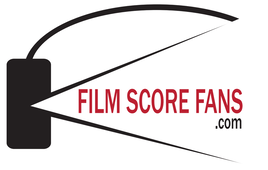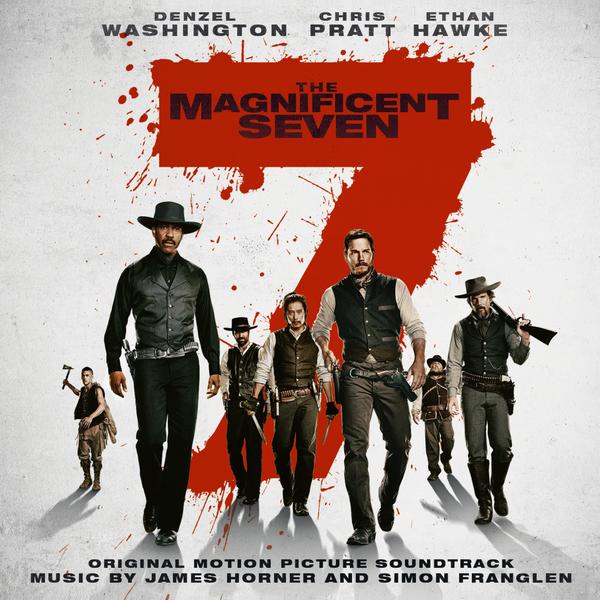The Magnificent Seven - James Horner & Simon FRANglen |
11/6/16 |
|
|
What You Will Hear: Mix of Horner’s go to voicings and a healthy dose of trumpet echos, shakuhachi flute, the danger motif (among other common Horner cells), and female vocals mixed with Franglen’s contributions.
Standout Tracks: Rose Creek Oppression, Seven Angels of Vengeance, Volcano Springs, Street Slaughter, Town Exodus – Knife Training, So Far So Good, Pacing The Town, The Deserter, Faraday’s Ride, Seven Riders Will You Be Humming Along? There is a melody (it feels like The Ludlows) that travels through multiple variations in style and instrumentation. There is also a villain theme, I think. It’ll take a few more listens (or seeing the film) to pin that one down.
The album this makes me want to dust off: Legends of the Fall – James Horner Will I come back to it? From the opening notes, there is no doubt that this is a James Horner score. The initial combination of flute, trumpet, and vocals make this fact very clear. (See: Rose Creek Oppression) It’s like Aliens landed in the middle of Legends of the Fall. Throw in a little Ransom to modernize things, and you’ve got The Magnificent Seven. I’m not going to waste time comparing this to Elmer Bernstein’s score. It’s an untouchable classic from a different era, and we’re too far removed to note any valuable comparisons. I assume that most, like I did, will approach this album with one question: Will it really have the heart we’ve come to expect in James Horner’s music? The answer is absolutely yes. In fact, the Magnificent Seven serves as a subtle memorial to the composer. As the story goes, James Horner wrote some melodies and other ideas out before he saw anything from director Antoine Fuqua. Simon Franglen is a long time collaborator of Horner’s, and he surprised Fuqua by bringing Horner’s sketches to the set. It was decided that Franglen would lead the charge to bring Horner’s final work to completion. I’m personally thankful to the entire production team for making this happen. Franglen makes no secret about the fact that this was a labor of love, and it comes across in the music. You’ll experience countless Horner-isms from the danger motif, to the Zorro dancers, to the Ransom piano, and beyond. But, none are too heavy handed. Yes it is an action movie, but the music just feels like there is an extra level of reverence involved. |
I would have enjoyed more guitar or western influence. (See: Volcano Springs) But, the writing is engaging from start to finish. As a Horner fan, there is just a lot to enjoy. The haunting female vocals, and sometimes angst filled male vocals are never overbearing. (See: Street Slaughter) They work nicely. There’s a lot of emotion there. Horner’s ability to write for strings and horn are not a focal point, but when it happens, it is gorgeous. (See: Town Exodus or The Bell Hangers) Again, nothing is overstated in Franglen’s memorialization. The shakuhachi flute is on display from start to finish. Lots to enjoy.
Franglen’s original material isn’t always seamless, and I don’t think it should be. I could be totally wrong, but the distinction between Horner’s and Franglen’s work is fairly clear. But, his music fits in nicely. Franglen even brings some new additions to the soundscape. On some of the more sinister tracks, there is a really cool string pizzicato effect. I really have no idea if it is that simple or if other equipment was used, but it really works. (See: Devil In the Church) The use of Elmer Bernstein’s original rhythmic content was also enjoyable. Just like Horner’s go to “tricks,” this rhythm is never over done. (See: Volcano Springs, Seven Riders) Everything is done in good taste.
If you’re not a huge James Horner fan, you might not consider this a gem. The main theme is nice but isn’t overly powerful and the soundscape doesn’t instantly identify as a Western. If you are unable to remove Bernstein’s score from your ear, you might have trouble accepting this effort. However, if you are a devoted Horner fan, you are in for a treat. Horner is alive and well here, and Franglen is a name I'll be paying close attention to in the future. I hope The Magnificent Seven is as lovely a gift for you as it was for me.
Franglen’s original material isn’t always seamless, and I don’t think it should be. I could be totally wrong, but the distinction between Horner’s and Franglen’s work is fairly clear. But, his music fits in nicely. Franglen even brings some new additions to the soundscape. On some of the more sinister tracks, there is a really cool string pizzicato effect. I really have no idea if it is that simple or if other equipment was used, but it really works. (See: Devil In the Church) The use of Elmer Bernstein’s original rhythmic content was also enjoyable. Just like Horner’s go to “tricks,” this rhythm is never over done. (See: Volcano Springs, Seven Riders) Everything is done in good taste.
If you’re not a huge James Horner fan, you might not consider this a gem. The main theme is nice but isn’t overly powerful and the soundscape doesn’t instantly identify as a Western. If you are unable to remove Bernstein’s score from your ear, you might have trouble accepting this effort. However, if you are a devoted Horner fan, you are in for a treat. Horner is alive and well here, and Franglen is a name I'll be paying close attention to in the future. I hope The Magnificent Seven is as lovely a gift for you as it was for me.
The Magnificent Seven was provided courtesy of The Krakower Group and Sony Classical. Thank you!



